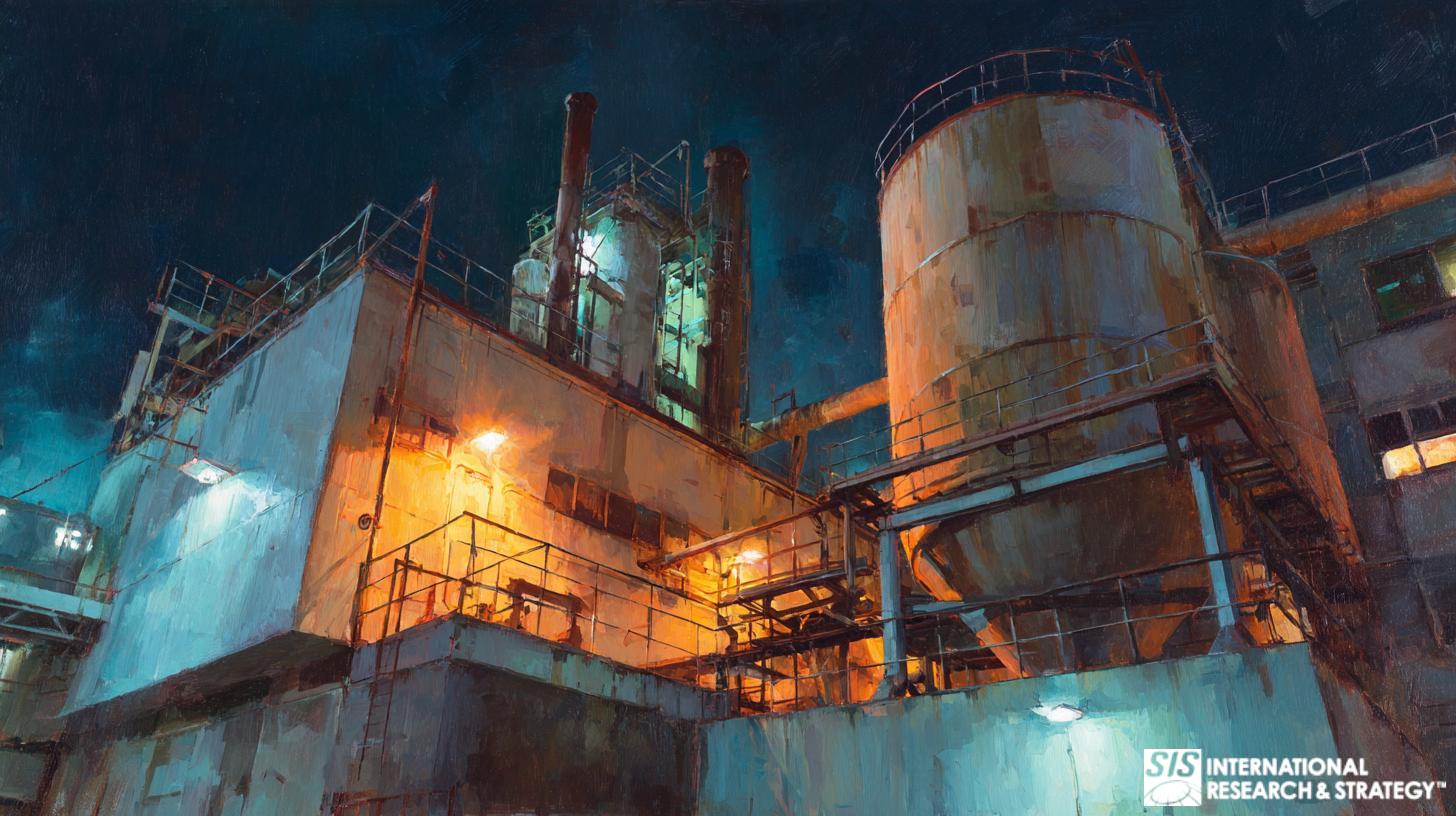Industrial Automation Market Research

What is Industrial Automation
Industrial automation uses robots and IT systems for managing machines and processes to replace human beings.
At first, its purpose was to decrease the cost related to human workers. Companies also used it to increase output. Today, though, the focus has shifted. Companies now use it to help them adapt to change. They are also using it to improve quality in the production process.
Automation is in almost all of today’s factories and shop floors. It’s hard to imagine a production line without it. We can divide it into three classes:
- Fixed: Firms often use this type for tedious tasks. It makes the process efficient and improves throughput rates.
- Programmable: This type is best for batches where the instructions change over time.
- Flexible: With this type, the firm can also convey changeovers via the control system. Thus, they’re fast and automatic. There’s also no need to adjust equipment between batches.
Industrial automation involves the utilization of modern technology to drive the automation of manufacturing processes and operations in industrial environments. This market is projected to witness considerable growth in the next few years, fueled by the expanding adoption of cutting-edge technological advances such as artificial intelligence (AI), robotics, and IoT in industrial processes.
This means that industrial automation market research is a rapidly expanding area because the tools of this sector are being continuously upgraded, and researchers must implement new strategies to keep pace with the industry, readjusting the approach of market analysts.
Why is Industrial Automation Important?
Industrial automation market research is a crucial element for the growth of today’s manufacturing industries, and a detailed study of this sector enables us to explore or create:
- New market opportunities
- Market entry strategies
- Potential product launches
- Usability testing
- Competitors analysis
- In-depth forecasting
- Sales and purchasing strategies
- And much more.
In addition, with the proliferation of new technologies, there are key growth drivers to consider in these studies such as the increasing adoption of data analytics to process data, optimize operations, and improve decision-making.
Every industry faces change and must manage it. In fact, these changes have boosted the demand for high-quality products and services. Since demand is high, production must increase to meet it.
Industrial Automation is important because it boosts production. It also reduces direct human labor costs and other expenses. Another benefit is that it improves product quality. It makes the product more uniform. Moreover, it increases the speed to market and enhances employee safety. In addition, it leads to the efficient use of materials. It enables shorter workweeks for labor and reduces factory lead times.
The main drawback is that it can displace workers, which can be a source of stress. They may have to learn new skills for their new roles. Workers may also have to uproot their families to find new work. Another drawback is the amount of capital needed to set it up. It also calls for more maintenance than manual operations.
Key Job Titles
Some of the jobs in this field are:
- Project Manager
- Product Manager
- Controls Engineer
- Sales Engineer
- Field Systems Engineer
- Automation Application Engineer
- Technician
- PLC Programmer
Why Businesses Need Industrial Automation
Businesses need automation to streamline their processes. They can benefit from robots and other control systems. These systems reduce human error and save money. Labor-intensive, tedious jobs can cause workers to feel bored and distracted. Automation gives them respite from those tasks. It allows them instead to focus their attention and skills elsewhere.
Key Success Factors
- Design: You must have first-rate product design to make the most of Industrial Automation.
- Supply Chain: A supply chain that can work well and at the lowest possible cost is an asset.
- Location: Many industrial automation products are large in size. So, a location close to the end customer can lower costs.
- Processes: You need robust processes. This need increases as assemblies become more complex.
- Quality Checks: Your company needs to embed quality into the culture. Each worker must know why their part in the process is crucial.
- Aftermarket Services: You also need to customize aftermarket services. These services must fit your needs and those of your customers.
About Industrial Automation Market Research
The global surge in e-commerce is only now starting. Online shopping will continue to expand in the years to come. Ensure that you use Quantitative Research to make the most of it. Qualitative Research can guide you through it. You’ll also need Strategy Research for long-term planning. Engage with your future customers through Interviews, Surveys, and Focus Groups. The result will be the growth of your company and an increase in profits.
Benefits of industrial automation market research for the decision-making process
Conducting industrial automation market research plays a crucial role in enabling companies to develop an understanding of the current state of the market, discover trends and opportunities, and make well-informed decisions concerning product development and investments.
At the same time, it enables companies to monitor technological advances and competitors’ actions to remain competitive, which can be extremely beneficial for long-range planning and budgeting.
Thus, this sector is widely studied and growing, and increasing numbers of analysts are researching it in depth to provide their clients with precise and accurate data.
Trends and opportunities in the industrial automation market research

Industrial automation is in a constant process of evolution with new business opportunities based on technologies such as artificial intelligence and the internet of things that are gradually changing the landscape and processes of industrial automation.
These tools are leading to greater connectivity, productivity, efficiency, and cost-effectiveness for industrial automation.
- Even technologies with a longer time in the market such as cloud computing are being massively adopted to improve the quality and security of industrial automation data. It ensures customers and relevant data are highlighted by analysts in their reports.
- Cybersecurity is undoubtedly a growing concern as industrial automation systems become more connected and complex. As a result, more companies invest in security solutions to protect their systems and data.
- The ever-growing prominence of robotics is also projected to drive the overall growth of the industrial automation market. Robotics entails the engineering, manufacturing, and operation of intelligent machines to aid human operators. It is increasingly being implemented in industrial automation processes to handle a variety of machinery and operations in the industry to boost efficiency, substitute manual labor, and increase overall performance and speed.
Therefore, consulting firms must highlight all the changes that are taking place in the industrial automation industry to accurately deliver reports that will allow them to make forward-looking strategies. Also, the use of new technologies will enhance growth and change the business landscape as processes will rely less on human analysis and more on the use of technologies.
Critical success factors in industrial automation market research
- Deep understanding of the market and its trends
- Identification of key industry players
- Understanding of the regulatory and legal environment
- Constant updates in technological developments
- Conducting customer research
Understanding Industrial Automation Market Research
Industrial automation involves the utilization of modern technology to drive the automation of manufacturing processes and operations in industrial environments. This market is projected to witness considerable growth in the next few years, fueled by the expanding adoption of cutting-edge technological advances such as artificial intelligence (AI), robotics, and IoT in industrial processes.
This means that industrial automation market research is a rapidly expanding area because the tools of this sector are being continuously upgraded, and researchers must implement new strategies to keep pace with the industry, readjusting the approach of market analysts.
The importance of industrial automation market research
Industrial automation market research is a crucial element for the growth of today’s manufacturing industries, and a detailed study of this sector enables us to explore or create:
- New market opportunities
- Market entry strategies
- Potential product launches
- Usability testing
- Competitors analysis
- In-depth forecasting
- Sales and purchasing strategies
- And much more.
In addition, with the proliferation of new technologies, there are key growth drivers to consider in these studies such as the increasing adoption of data analytics to process data, optimize operations, and improve decision-making.
Benefits of industrial automation market research for the decision-making process
Conducting industrial automation market research plays a crucial role in enabling companies to develop an understanding of the current state of the market, discover trends and opportunities, and make well-informed decisions concerning product development and investments.
At the same time, it enables companies to monitor technological advances and competitors’ actions to remain competitive, which can be extremely beneficial for long-range planning and budgeting.
Thus, this sector is widely studied and growing, and increasing numbers of analysts are researching it in depth to provide their clients with precise and accurate data.
Trends and opportunities in the industrial automation market research
Industrial automation is in a constant process of evolution with new business opportunities based on technologies such as artificial intelligence and the internet of things that are gradually changing the landscape and processes of industrial automation.
These tools are leading to greater connectivity, productivity, efficiency, and cost-effectiveness for industrial automation.
- Even technologies with a longer time in the market such as cloud computing are being massively adopted to improve the quality and security of industrial automation data. It ensures customers and relevant data are highlighted by analysts in their reports.
- Cybersecurity is undoubtedly a growing concern as industrial automation systems become more connected and complex. As a result, more companies invest in security solutions to protect their systems and data.
- The ever-growing prominence of robotics is also projected to drive the overall growth of the industrial automation market. Robotics entails the engineering, manufacturing, and operation of intelligent machines to aid human operators. It is increasingly being implemented in industrial automation processes to handle a variety of machinery and operations in the industry to boost efficiency, substitute manual labor, and increase overall performance and speed.
Therefore, consulting firms must highlight all the changes that are taking place in the industrial automation industry to accurately deliver reports that will allow them to make forward-looking strategies. Also, the use of new technologies will enhance growth and change the business landscape as processes will rely less on human analysis and more on the use of technologies.
Critical success factors in industrial automation market research
- Deep understanding of the market and its trends
- Identification of key industry players
- Understanding of the regulatory and legal environment
- Constant updates in technological developments
- Conducting customer research
Methodologies for conducting industrial automation market research

Research assists strategists need to fully comprehending the values and feelings of their customers. It enables analysts to explore and elucidate the underlying reasons people feel the way they do and understand customers’ perceptions of a product or service.
From in-depth interviews with industry experts, surveys of key stakeholders, and focus groups, companies can gain valuable insights and data on customers’ purchases, behavioral patterns, and market reputation, among other data of interest.
In any case, it is important to consider several key success factors for an industrial automation market research project such as:
- Accurate research goals with concrete benefits. Keeping clear goals will lead the research to have clear data and, above all, findings that will straightforwardly facilitate decision-making for businesses.
- Reliable sources with accurate data. Having quality sources and collecting accurate data makes the difference between a poor report and high-quality research that is fully actionable for the key players in the industry.
- Team with robust analytical capabilities. Despite the introduction of artificial intelligence for mass market research, it is still vital to keep analysts with extensive analytical expertise to extract the most meaningful insights and key takeaways from each report.
- Good timing. To conduct industrial automation market research, it is often vital to adjust to new market trends as market circumstances vary greatly from year to year. The market is rapidly evolving, and timing is relevant for decision-making. For this reason, each report must be updated frequently to keep up with the latest technologies that are reshaping the landscape of this sector.
Major challenges of the industrial automation sector
Despite all the advantages that this industry may have, it also poses some potential risks due to the constant generation of new technologies that do not allow long-term operating protocols. Not to mention the fact that obtaining state-of-the-art technology can be costly and require a large investment in the early stages of the process.
Therefore, this industry will have the following challenges:
- Rising cost: The industrial automation industry relies on highly advanced technologies with sophisticated features. It leads to an increase in the cost of industrial operations, even if it is a cost-effective strategy in the medium and long term.
- Insufficient knowledge: There is a gap in the knowledge of emerging technologies developed for industrial automation. Improved technologies in machinery and equipment require a profound understanding to perform the task, and a lack of knowledge can halt the growth of the industrial automation market.
- No standardized protocols and procedures: Without protocols to deal with rising technologies and the increasing pace of technological growth, companies can be challenged and hinder the advances of the industry.

